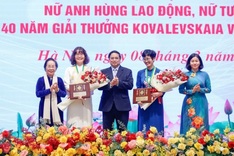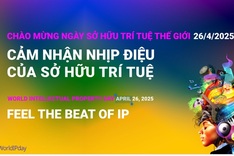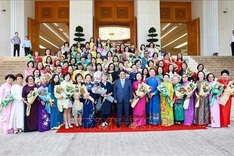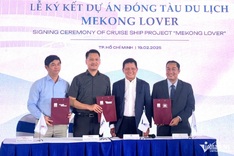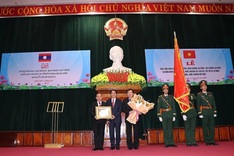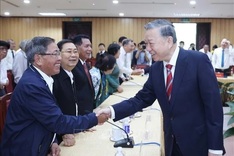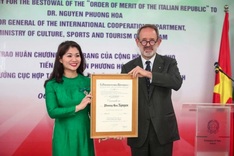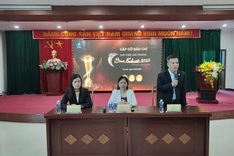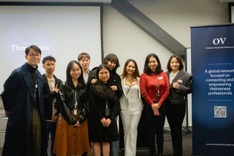Vietnam has rapidly established itself as a premier destination for scientific talent worldwide, driven by a robust policy framework aimed at nurturing talent and cultivating a skilled workforce for sustainable development.
In recent years, the country has welcomed an impressive roster of scientific luminaries, including Nobel laureates and recipients of other prestigious awards. These visits have not only enriched the Vietnamese scientific landscape but also sparked collaborations that are pushing the boundaries of knowledge.
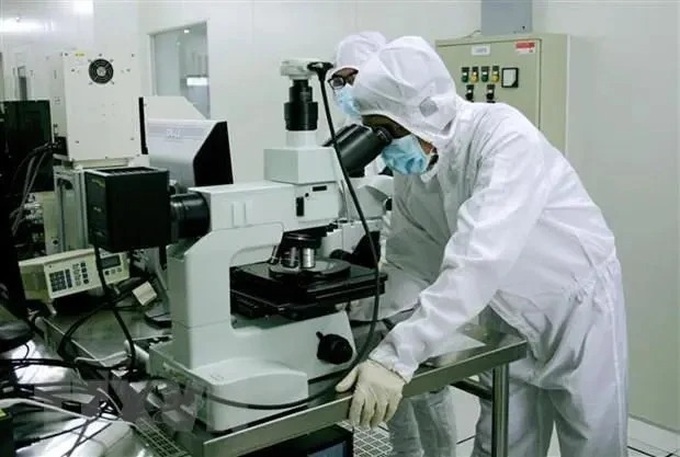
Illustrative image (Photo: VNA)
At the forefront of this scientific renaissance are the Meet Vietnam Association (MEA) and the International Centre for Interdisciplinary Science and Education (ICISE). Founded in 1993 by Prof. Tran Thanh Van, a distinguished French-Vietnamese physicist, MEA has played a pivotal role in fostering cooperation and advancing science and higher education in Vietnam. The association's partnership with UNESCO, established in 2012, has further amplified its impact on the global scientific stage.
In 2023 alone, MEA and ICISE, in collaboration with the Binh Dinh provincial People's Committee, held nearly 150 international scientific conferences and over 45 specialised scientific classrooms, drawing nearly 10,000 scientists from 35 countries and territories. The association also hosted public science talks, online and in-person interactions with Nobel laureates, providing invaluable opportunities for students, scholars, and the general public to engage with some of the brightest minds in the field.
A significant milestone in Vietnam's scientific landscape is the establishment of the VinFuture Prize, the first by a Vietnamese entity and one of the world’s most valuable annual prizes. Now in its fourth season, the VinFuture Prize has garnered nearly 1,500 nominations from over 80 countries and territories, with more than 9,000 scientists serving as nominating partners.
Prof. Sir Richard Henry Friend, Chairman of the VinFuture Prize Council, highlighted the prize's impact by noting that past recipients have gone on to achieve even greater accolades. For instance, Dr. Katalin Karikó and Prof. Drew Weissman, winners of the inaugural VinFuture Prize for their groundbreaking research on the mRNA COVID-19 vaccine, later received the 2023 Nobel Prize in Physiology or Medicine. Similarly, Dr. Demis Hassabis and Dr. John Jumper, recipients of the VinFuture Special Prize in 2022, were recently awarded the 2024 Nobel Prize in Chemistry.
In 2024, the group of authors honoured with the VinFuture Special Prize 2023 for their pioneering research in emerging fields have been named among 100 most influential people in the world, particularly in the health sector, by Time magazine. They also earned accolades at other prestigious international awards, such as the Tang Prize and the Lasker Awards.

